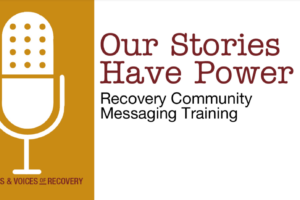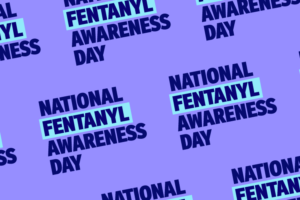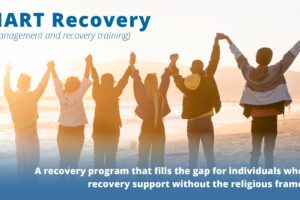Two Parents Discuss the Benefits of Needle Exchange – Part Two
Pictured above is Karlene Shafer on the left, pointing to her daughter’s name on the remembrance tree, and father Dean O’Gorman on the right.
In last week’s blog article, Part One: Harm Reduction with Dean and Karlene, we were fortunate to hear perspectives from Dean O’Gorman and Karlene Shafer about opioid-related harm reduction and their personal passions for ending the opioid overdose crisis. Both Dean and Karlene have lost a child to overdose, and have been fighting to spread awareness through their stories. To reiterate, harm reduction refers to practices, policies, and strategies that aim to minimize harm, risk, and negative outcomes associated with drug use.
One effective harm reduction strategy is the presence of Needle Exchange Programs (NEP’s) and Syringe Exchange Programs (SEP’s). While the sound of it may cause some natural apprehension, years of research indicate that these programs are effective in reducing deaths and harm related to needle use.
Needle Exchange Programs
The goal of needle exchange programs is to reduce the transmission of HIV and other blood-borne infections associated with drug injections. An individual can exchange a used, potentially contaminated needle, for a sterile one. SEP’s and NEP’s provide people who use drugs access to sterile needles and syringes at no cost and safely dispose of used needles and syringes.
According to the CDC, nearly 30 years of research has shown that needle exchange programs are safe, effective, cost-saving, and most importantly, they reduce the transmission of viral hepatitis, HIV and other infections. In addition, research shows that SEP’s and NEP’s do not increase illegal drug use or crime.
Upon first hearing about it, a needle exchange may sound frightening or risky. Some people may think how can giving people needles be good? Won’t it enable them to keep using drugs?
All research indicates that no, it does not enable people or create problems. It gets used needles out of community spaces, reduces disease transmission, and much more. Likewise, the presence of a needle exchange creates social connections and access points that provide people the opportunity to access treatment.
There are some aspects of harm reduction related to drug use that may not be appealing or sound beneficial to all. However, as Dean and Karlene have both expressed – it is the outside the box thinking we need as a community. Dean and Karlene talked about their changed perspectives of needle exchange after losing children to overdose.
Karlene shared: “My daughter passed away from heroin and fentanyl. Once she passed away we would find needles, and at the time I thought they were evil and wanted them away from me. But my views on needle exchange have changed. It is safer for everyone. If your kid is running around barefoot at the park, they could be poked with a needle. A needle exchange removes that risk. And that was a hard decision for me to make, because at first I was very opposed to the idea.”
Dean contributed; “The types of harm reduction may not be something we fully want to discuss or agree with. I would encourage people to not be reactive to the term needle exchange but understand what that means. There have been needles right in the courtyard, in our kids playgrounds, and in our yards. A needle exchange will help because those needles will be returned and away from where our kids can get harmed.”
“Yes, they may get more needles if they need them, but it’s not just “here’s five needles, here’s five more,” this person is getting help and forming a bond with someone who can get them into treatment when they’re ready. Every time they come, they are building a trust, to where they may reach a point of comfortability where they can say ‘I need help.’ That’s why I encourage everyone to take the time to look into what a needle exchange truly is and what it means.
“I never thought I would need to understand harm reduction. I remember when there was a needle exchange going into Tompkins County and there was a lot of resistance to that and opposition. And then I lost my son, and I had to dig into understanding all of this more so I could actually help other people. In turn, it helps me get through this so my son’s loss of life wasn’t in vain.”
Healing Cortland is thankful for the personal perspectives and stories Dean and Karlene shared with us. As Dean and Karlene both mentioned, their opinions on needle exchange changed over time. They hope that by sharing their stories, community members will be open to understanding that we may not always initially agree with or understand some of these strategies to reduce harm. In the end, what matters most is decreasing overdose deaths and reducing the risks associated with opioid use.
The Southern Tier AIDS Program (STAP)
STAP, with locations in Ithaca, Johnson City and Norwich, offers a range of services, including a Syringe Exchange Program that serves clients in Cortland County. They also offer confidential HIV and other testing services, can connect individuals to treatment for substance use, and offer at-home care for clients with chronic illnesses. Their nearest office is located on 314 West State Street, Ithaca and their phone number is (607) 272-4098.






